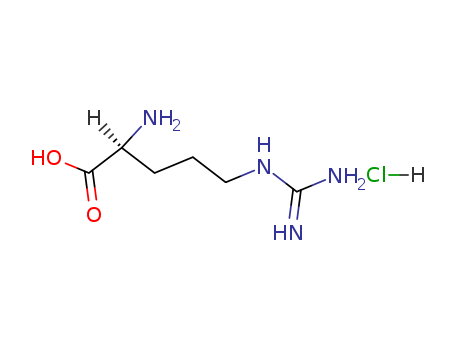- Chemical Name:Arginine Hydrochloride
- CAS No.:1119-34-2
- Molecular Formula:C6H14N4O2.HCl
- Molecular Weight:210.664
- Hs Code.:29252000
- European Community (EC) Number:214-275-1,239-674-8
- UNII:F7LTH1E20Y
- DSSTox Substance ID:DTXSID20883650
- Wikidata:Q27277776
- NCI Thesaurus Code:C29606
- RXCUI:89918
- ChEMBL ID:CHEMBL1200381
- Mol file:1119-34-2.mol
Synonyms:Arginine;Arginine Hydrochloride;Arginine, L Isomer;Arginine, L-Isomer;DL Arginine Acetate, Monohydrate;DL-Arginine Acetate, Monohydrate;Hydrochloride, Arginine;L Arginine;L-Arginine;L-Isomer Arginine;Monohydrate DL-Arginine Acetate



 Xi,
Xi, Xn
Xn


